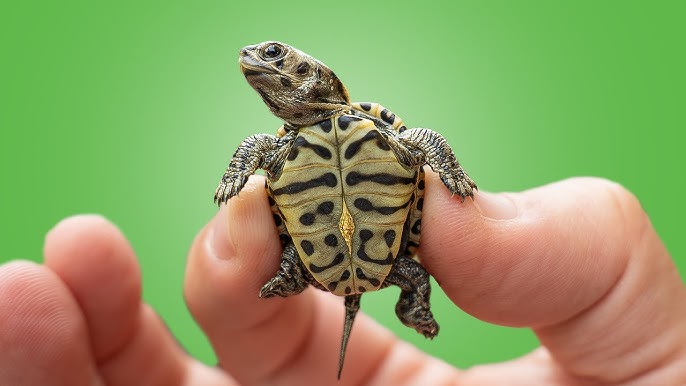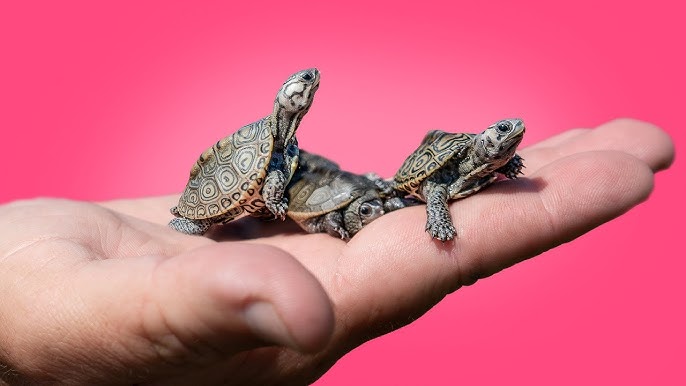Turtles make fascinating and low-maintenance pets, but many prospective turtle owners often wonder: are turtles happy pets? While turtles are relatively solitary animals, they can experience joy and contentment when provided with the proper care, environment, and attention. This article will explore the factors that contribute to a turtle’s well-being, signs of a happy turtle, and how you can ensure that your pet turtle is living its best life. By the end of this guide, you’ll have a comprehensive understanding of how to maintain a healthy and happy turtle.

Before diving into the specific ways to care for your turtle, it's important to understand what contributes to a turtle’s happiness. While turtles are not known for their outward displays of affection like dogs or cats, they do have specific needs that must be met for them to thrive.
A well-maintained habitat is essential to keeping your turtle happy. Turtles are highly sensitive to their environment, and a suitable enclosure can greatly improve their quality of life. According to Zimmerman (2020) in Land Tortoise Care: Health and Environment, turtles need an enclosure that mimics their natural habitat in terms of space, temperature, humidity, and lighting. Whether you are housing a land tortoise or an aquatic turtle, providing a comfortable space is key to ensuring their happiness.
Aquatic Turtles need a large tank with both water and a basking area where they can dry off and soak up UVB light.
Land Tortoises need a spacious, secure area with enough room to roam, burrow, and bask under a heat lamp.
Just like any other pet, turtles require a balanced diet to stay healthy and content. An improper diet can lead to health issues such as shell rot, malnutrition, or poor growth. According to Miller (2017) in The Pet Turtle Handbook, offering a variety of foods is important to ensure your turtle’s happiness. Aquatic turtles often enjoy a diet of protein (such as fish, worms, or insects) along with leafy greens and occasional fruits, while land tortoises thrive on vegetables, fruits, and some plant matter.
Providing a well-balanced diet helps turtles stay energetic, grow properly, and maintain strong immunity, all of which are important for their overall well-being.
Understanding whether your turtle is happy requires paying attention to their behavior. While turtles do not show emotions in the same way that more social pets do, there are certain signs you can look for to determine if your turtle is living a fulfilling life.
One sign of a happy turtle is curiosity and activity. According to Thompson (2020) in the Herpetological Society Journal, turtles that are well cared for tend to be active, exploring their surroundings, foraging for food, and engaging in natural behaviors like basking or swimming. If your turtle is moving around its enclosure, exploring, and eating well, these are good indicators that it is content.
Turtles take great care of their shells, and a healthy shell is a reflection of overall well-being. If your turtle’s shell is smooth, free of cracks, and the correct color (depending on the species), it’s an indication that it is healthy and happy. Miller (2017) mentions that a turtle with a dull, damaged, or irregular shell may be experiencing stress or health issues.
Some species of turtles, such as red-eared sliders or painted turtles, can coexist with others of their kind. If you have multiple turtles, happy turtles are usually social with their tank mates, though it's important to ensure there is enough space and food for all to prevent territorial disputes.

While turtles are not as social as dogs or cats, they can form a bond with their owners, especially if they are raised in captivity. However, turtles are solitary animals by nature, and their social needs are minimal compared to other pets. This doesn’t mean that they don’t benefit from occasional interaction. Many turtle owners find that their turtles become accustomed to their presence and will even approach their owners during feeding times or when they are cleaning the enclosure.
Turtles do not typically need companionship to be happy, but that doesn’t mean they don’t enjoy occasional interactions. Zimmerman (2020) notes that turtles can recognize their owners and may become more active when they hear familiar voices or see familiar faces. However, it's important to understand that turtles do not seek out affection or companionship in the same way other pets do. They are best suited to solitary living, but they can tolerate limited human interaction, especially when handled gently.
To ensure your turtle is as happy and healthy as possible, here are several care tips to follow:
As mentioned earlier, turtles need a suitable environment to be happy. Whether aquatic or terrestrial, your turtle’s habitat should be spacious, clean, and properly lit. Aquatic turtles need a filtration system for clean water, while land tortoises need a secure outdoor area with access to shade, heat lamps, and plenty of room for foraging.
Overcrowding is one of the biggest mistakes turtle owners can make. Turtles need room to move around, explore, and perform natural behaviors. Ensure that your turtle has adequate space within its enclosure, whether it's a tank, terrarium, or outdoor pen.
Feeding your turtle a healthy, varied diet is crucial for its long-term well-being. Research your turtle’s specific dietary needs and provide fresh foods on a regular basis. A diet rich in nutrients ensures that your turtle remains healthy and happy for many years.
Turtles, especially aquatic species, need UVB light for proper calcium absorption and to regulate their natural sleep-wake cycle. Providing access to UVB light is crucial for maintaining healthy bones and a strong immune system, which in turn contributes to their happiness.
So, are turtles happy pets? The answer is yes, but only if their specific needs are met. Turtles are solitary, low-maintenance creatures that can thrive in the right environment. They may not show affection in the traditional sense, but they can experience joy and contentment when they have a suitable habitat, a healthy diet, and a balanced lifestyle.
By understanding the specific needs of your turtle and ensuring that it has everything it needs to be comfortable, you can create a happy and fulfilling life for your pet turtle. With the right care, turtles can indeed be happy pets that bring joy to their owners for years to come.
References:
Zimmerman, K. (2020). Land Tortoise Care: Health and Environment. Reptile Research Press.
Thompson, S. (2020). "The Behavior of Pet Turtles: Exploring Curiosity and Social Interaction." Herpetological Society Journal, 25(3), 12-24.
Miller, R. (2017). The Pet Turtle Handbook: Care, Feeding, and Behavior. Reptile Press.
animal tags: Testudines
We created this article in conjunction with AI technology, then made sure it was fact-checked and edited by a Animals Top editor.